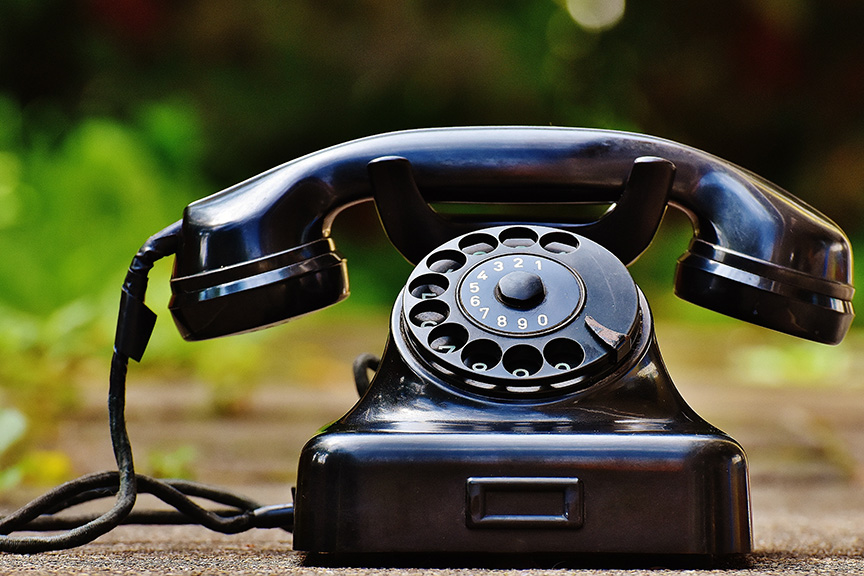
Scammers are Trying to Monopolize on Fear of COVID-19
COLUMBUS, OH, MAR. 30, 2020 — The Ohio Emergency Management Agency (Ohio EMA) is receiving reports of spam calls to Ohioans from individuals claiming to be from the Ohio EMA and requesting personal protected information, such as a Social Security number.
“The Ohio Emergency Management Agency is not calling Ohioans and asking for their protected personal information,” said Executive Director Sima Merick. “If you receive such a call, it is a scam. Please hang up the phone.”
Ohio Attorney General Dave Yost and Ohio Department of Commerce Director Sherry Maxfield offer these tips to protect yourself from other scams:
· Watch out for emails claiming to be from the federal Centers for Disease Control and Prevention (CDC) or other expert sources offering special advice or information about coronavirus disease 2019. Legitimate information is available for free from the CDC coronavirus.gov or from the Ohio Department of Health at coronavirus.ohio.gov.
· Ignore advertisements promoting cures for COVID-19. There currently are no vaccines, prescription medications, or over-the-counter products available to prevent, treat, or cure COVID-19.
· Refrain from investing in businesses touting products, services or cures for COVID-19. Scam artists try to use the market downturn and the pandemic to scare investors into so-called “safer, guaranteed investments.”
· Research nonprofit organizations and crowdfunding campaigns before donating. A database of registered charities is available on the Ohio Attorney General’s website. Avoid groups that pressure you into donating and never donate via cash, gift cards, wire transfer, or prepaid money card. These are the preferred payment methods of scammers.
· Be watchful of anyone going door to door offering coronavirus testing or temperature readings and/or requesting personal information. Call law enforcement immediately if you see a suspicious person. Never let strangers into your home.
· Beware of emails and other attempts to “phish” for your personal, financial, and/or medical information. When in doubt, do not share. If the source claims to be your bank or a government agency, confirm they are legitimate by calling the organization at a phone number you have verified.
For information on government stimulus checks, visit the Federal Trade Commission website and stay tuned for updates from reliable news sources. The government will not ask you to pay anything to receive this money and will never ask for your Social Security number, bank account number, or credit card number. Never give this information out.
· When online, avoid clicking on unknown links or pop-ups and never download any suspicious email attachment. Doing so could infect your devices with malicious software designed to steal your personal information or lock your computer until you pay a ransom.
The Department of Commerce asks consumers to ask yourself these questions to help spot red flags:
· Has someone contacted you unexpectedly about an investment opportunity or asked for payment on an unfamiliar account? If you weren’t expecting a phone call or didn’t initiate the contact, hang up. If you can put a block on the incoming phone number, do so to avoid additional calls.
· Has someone promised you something? If you are offered something that seems too good to be true, it probably is.
· Has someone asked you to do something? Were you asked for banking, credit card, or other financial account information? If you didn’t initiate the conversation, don’t provide it.
· Is an investment being offered with a guaranteed high return with little or no risk? All investments carry risk. No one can guarantee an investment return.
· Is there a sense of urgency or limited availability surrounding an investment? If the offer is legitimate, it will be there later. If someone offers you a “can’t miss” investment opportunity and puts you on the spot, don’t be afraid to walk away.
· Is the person offering the investment, and the investment itself, properly licensed or registered? For the same reasons you wouldn’t go to an unlicensed doctor or dentist, you should avoid unregistered investment salespeople and their products.
· Consumers who suspect an unfair or deceptive sales practice should contact the office of Ohio Attorney General Dave Yost at www.OhioProtects.org or 1-800-282-0515.
Attorney General Yost’s Consumer Protection Section is receiving complaints of price gouging for items such as surgical masks and toilet paper. State law bans unconscionable sales practices, which could include dramatically increasing the price products solely in response to current events.
For answers to your COVID-19 questions, call 1-833-4-ASK-ODH (1-833-427-5634).
If you or a loved one are experiencing anxiety related to the coronavirus pandemic, help is available. Call the Disaster Distress Helpline at 1-800-985-5990 (1-800-846-8517 TTY); connect with a trained counselor through the Ohio Crisis Text Line by texting the keyword “4HOPE” to 741 741, or call the Ohio Department of Mental Health and Addiction Services helpline at 1-877-275-6364 to find resources in your community.
Ohio Emergency Management Agency Will NOT Call You Asking for Personal Information.
Posted by Dan Starcher, public communications specialist for the Wayne County government.
